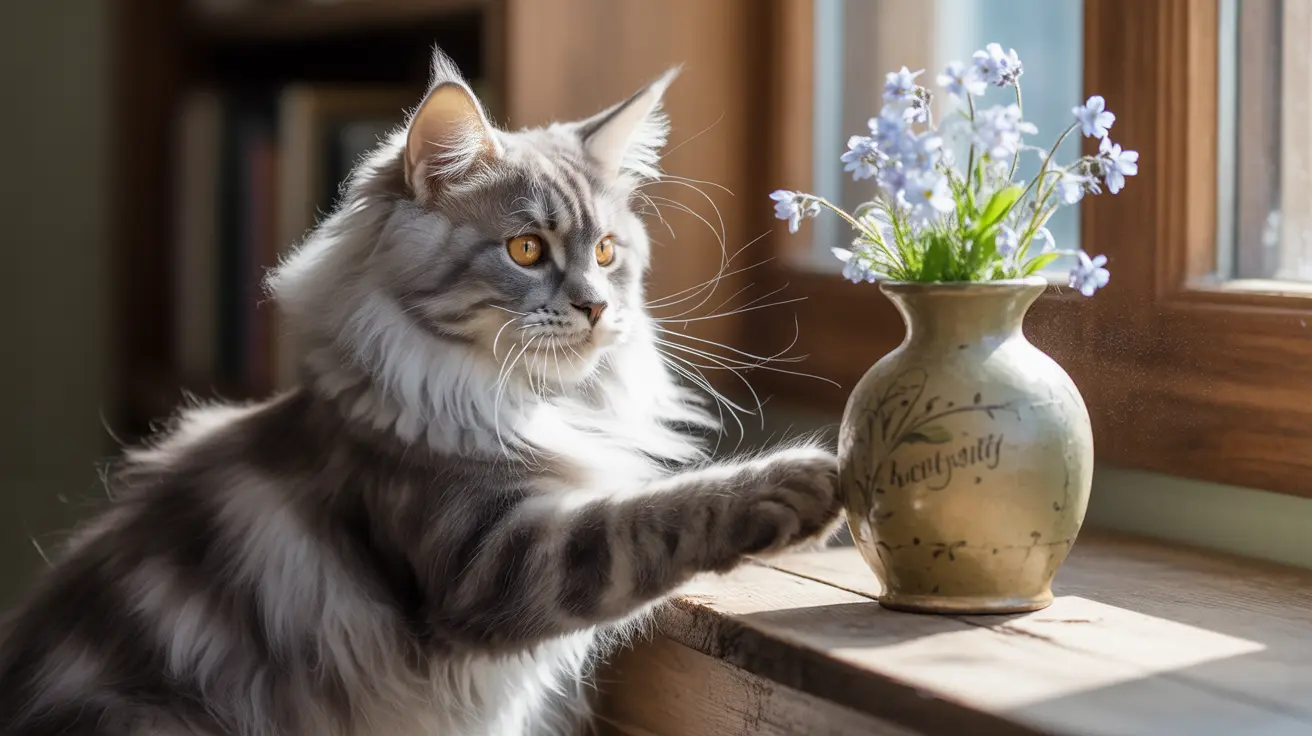Many cat owners have experienced moments where their feline friends seem to act with deliberate malice - urinating on a beloved sweater, knocking over a favorite vase, or giving the cold shoulder after a vacation. This often leads to the question: are cats spiteful creatures capable of revenge?
The short answer is no - cats are not actually capable of spite or vengeful behavior. What we interpret as spiteful actions are usually normal feline behaviors driven by stress, medical issues, or natural instincts. Let's explore the science behind cat behavior and debunk some common misconceptions.
The Science Behind Cat Emotions
Unlike humans, cats lack the complex emotional and cognitive framework required for feelings like spite or vengeance. While they do experience basic emotions like fear, happiness, and anxiety, they don't possess the sophisticated emotional capacity needed to plot revenge or hold grudges.
Cats do have excellent memory capabilities, particularly regarding experiences that affect their survival. They form associations between actions and outcomes, but these are instinctive responses rather than calculated revenge.
Common "Spiteful" Behaviors Explained
Inappropriate Elimination
When cats urinate outside their litter box, it's often misinterpreted as an act of revenge. However, this behavior typically indicates:
- Medical issues like urinary tract infections
- Stress from environmental changes
- Dirty or poorly placed litter boxes
- Territory marking needs
- Anxiety about new pets or household members
Destructive Behaviors
Scratching furniture and knocking items off surfaces are natural behaviors that serve specific purposes:
- Scratching maintains claw health and marks territory
- Pushing objects helps cats explore their environment
- These actions fulfill hunting instincts
- They provide necessary physical exercise
Understanding Your Cat's Communication
What we perceive as spite is usually your cat's attempt to communicate needs or concerns. Cats are subtle communicators, and seemingly negative behaviors often indicate:
- Unmet environmental needs
- Physical discomfort or illness
- Anxiety or stress
- Need for attention or enrichment
- Response to routine changes
Creating Positive Solutions
Instead of attributing malicious intent to your cat's behavior, focus on addressing underlying causes:
- Schedule regular veterinary check-ups
- Provide multiple clean litter boxes
- Install appropriate scratching posts
- Create engaging play routines
- Maintain consistent daily schedules
- Offer safe spaces for retreat
Frequently Asked Questions
Are cats truly spiteful or capable of holding grudges against their owners?
No, cats cannot be spiteful or hold grudges. These are complex human emotions that cats don't possess. What appears as grudge-holding is usually stress, fear, or natural behavioral responses to environmental changes.
What causes cats to urinate outside the litter box—is it a sign of spite or an underlying issue?
Inappropriate elimination is never about spite. It's typically caused by medical issues (like UTIs), stress, dirty litter boxes, or territory marking. Always consult a veterinarian to rule out health problems first.
Why do cats knock objects off tables and scratch furniture if not out of revenge?
These behaviors are natural feline instincts related to exploration, hunting, and territory marking. Cats knock objects to test their movement and scratch to maintain claw health and mark their space.
How can I tell if my cat's negative behavior is due to stress, medical problems, or natural instincts?
Look for patterns in when the behavior occurs, recent changes in your cat's environment, and any accompanying symptoms. Sudden behavior changes often indicate medical issues and warrant a veterinary visit.
What are the best ways to respond to and prevent unwanted behaviors in cats without punishment?
Focus on positive reinforcement, provide appropriate outlets for natural behaviors, maintain consistent routines, and address environmental stressors. Never punish your cat, as this increases anxiety and can worsen behavioral issues.
Understanding that cats aren't spiteful creatures helps build better relationships with our feline companions. By addressing the real causes of unwanted behaviors, we can create happier, healthier environments for both cats and their human families.






